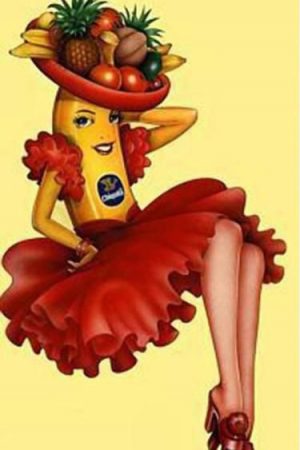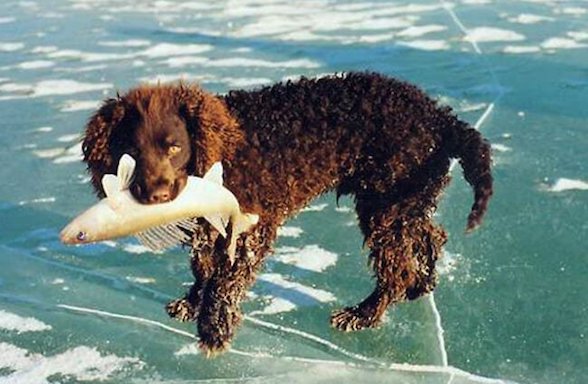
First, scroll down for a little mood music:
Chiquita, an American producer and distributor of bananas and other produce, got its start in 1870 when ship’s captain, Lorenzo Dow Baker, bought 160 bunches of bananas in Jamaica and resold them in Jersey City eleven days later. Two years after that, a Central American railroad developer named Minor C. Keith planted bananas alongside a Costa Rican railroad track to provide revenue for the railroad.
He would eventually partner with Andrew Preston to form the Boston Fruit Company. The Boston Fruit Company and some other fruit exporting concerns controlled by Keith would merge into what was then called the United Fruit Company. Its history after that was marked by a tragedy in 1928 when workers protesting against poor pay and working conditions were attacked by Colombian government military forces into the town where they had gathered. In the end, an unspecified number of plantation workers and their families were killed in what came to be known as the Masacre de las Bananeras, or Banana massacre, something author Gabriel García Márquez alluded to in his novel, One Hundred Years of Solitude.
We fast forward to 1944 when the same cartoonist who created the comic strip, Hägar the Horrible, Dik Browne, also created the company mascot, “Miss Chiquita.” She started out as an animated banana with a woman’s dress and legs and changed with updates over the years. The lyrics of the song you heard in the video above changed to remind viewers of how to tell when bananas were ready to eat, and never to put them in the refrigerator:
Hello, amigo!
I’m Chiquita Banana, and I’ve come to say
bananas have to ripen in a certain way,
and when they’re flecked with brown and have a golden hue
bananas taste the best and are the best for you.
You can put them in a salad.
You can put them in a pie, aye!
Any way you want to eat them,
it’s impossible to beat them.
But bananas like the climate of the very, very tropical equator,
so you should never put bananas in the refrigerator.
As near as we can tell, “chiquita” is a term used to refer to someone or something that is physically small. It’s a common nickname meaning shorty, little girl, or little lady. These were very different times, and the brand name Chiquita was registered as a trademark in 1947. Controversy revisited the brand in 2020 when the Miss Chiquita Banana mascot was branded as being racist.
So what do bananas have do to with dogs? Well, they are high in potassium, vitamin B6, and vitamin C, and some veterinarians recommend it as a healthy alternative to fatty, salty treats. Bananas have magnesium which promotes bone growth and helps a dog’s body produce protein and absorb vitamins. They are also high in fiber which can help if a dog is having gastrointestinal problems, but too many bananas can cause similar problems, so moderation is key. That said, banana peels, while not toxic to dogs, are hard to digest and may cause a blockage.

Drop the fish, you’re supposed to want a banana!
We have a confession to make: All of the aforementioned information is used as a segue to the American Water Spaniel‘s remarkable fondness for bananas. It’s evidently enough of “a thing” to be mentioned in scores of websites and sources, though we’ve not found a reason for the breed’s said penchant for the fruit other than that it may have the right consistency for the soft mouthed Spaniel.
We invite American Water Spaniel owners to help us understand – or even verify – the validity of this penchant for bananas.
Image was found on multiple sites with unspecified copyright concerns. We believe it to be credited to Norm and Mary Kangas of Noma’s American Water Spaniels.

You are amazing, Susi…where do you find this stuff? I love it!
Haha, Sharyn, read enough stuff and you come across the strangest things. We file them away for future use!